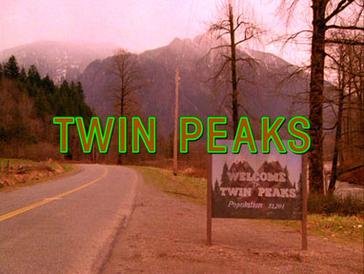As television has evolved as a medium, its production, consumption, and dissemination into broader culture has fundamentally changed. I explore this shift in my final essay through direct formal comparison to contemporary cinema, but that inquiry remains largely focused on aesthetics and differences in consumption. However, after reading Denise Mann’s article: “It’s not TV, it’s Brand Management,” I’ve expanded my analysis to include production and industry culture.
It’s difficult to say whether changing aesthetic preferences shaped industry structure, or if new business models (namely branding / corporate TV) enabled, or perhaps even necessitated this aesthetic shift. Either way, the end result is a new industry model, a new standard of aesthetics, and a new means of cross-platform “transmedia” engagement. The way TV is produced, the way it looks, and the way it’s consumed has changed drastically in just the past decade.
Starting with aesthetics, there has been a push for more “filmic” television in the past twenty / thirty years. This can perhaps be attributed to shows like Twin Peaks, which was among the first programs to bring cinematic conventions into the realm of television. David Lynch is primarily known for his cinematic work, so it makes sense that his skill set would spill over into television production, but this overlap was largely unprecedented. Later, shows like The Sopranos and The X-Files capitalized on this new aesthetic convergence to much success, and established a demand for this more filmic style of television. Put simply, if there’s money to be made, the added production cost is well worth it.

However, these shows are still fundamentally different from programs like Lost or Game of Thrones. Even though Lost was largely inspired by The X-Files, their ultimate purpose and end goals don’t overlap. The X-Files was an organic creation – a vision created and fostered by Chris Carter – brought to fruition for its value in and of itself. Lost, on the other hand, is a bit of a corporate “test tube baby,” highly engineered and carefully orchestrated to enable multiple revenue streams and reap a return on investment. That’s not to say that it’s “bad” or somehow less valid than something like The X-Files. In fact, the socioeconomic capital provided by this corporate oversight should make for masterful television, and for the most part it succeeds.
High budget “branded” television like Lost ushered in a new era of aesthetic and industry standards. With more money on the table, networks could afford to hire the best writers, actors, cinematographers, etc. This should make for a better end product, and ultimately a better viewing experience. However, there are also downsides to this business model. Ultimately, these downsides come down – like any industry – to money.
With the widespread adoption of this business model of fabricated branded television, the industry faces potential problems with sustainability. This can be attributed to two main problems. First, with so much capital invested in a handful of flagship shows, networks have to fill the rest of their air time with cheaper to produce reality and game shows. While this isn’t inherently a bad thing, it provides a barrier to entry for potentially good, but mid-budget shows. To get funded you have to pitch either a cheap reality show, or a massive transmedia franchise TV blockbuster. Secondly, in order to protect their investments in these TV blockbusters, networks cherry pick seasoned professionals with a proven track record. Again this isn’t inherently bad, but it limits opportunities for new talent and younger professionals who might otherwise be of great service to the industry.
Between these two gripes, there is a clear problem. In a modern network environment dominated by either blockbuster or reality television, there’s a distinct lack of mid-budget young-talent-produced, auteurial work. Lost capitalized on the success of The X-Files, but in its very creation, jeopardized the next generation of organically created shows like those it drew inspiration from. It effectively boxed out these more auteurial works, enabling a business model that prioritizes high-investment with guaranteed return over a multitude of mid-priced but potentially successful shows.
That’s not to say that this business model doesn’t work – it’s rapid adoption across the industry should be indicative of just how successful it is. However, it is fundamentally flawed, and lacks long term sustainability. Television is ultimately a business, and this era of corporate branded television makes that reality clearer now than perhaps ever before. I just wonder how many promising young writers and potentially groundbreaking shows have been passed up for the sake of comfortable, guaranteed return on investment.
One reply on “Corporate Television”
Interesting take Chris. Something I would add to this is it’s not just TV that’s been affected by this push to be more – as you say – cinematic. Take video games for example, video games nowadays are not only being pushed to look more realistic and have adult themes. God of War 2018 is the perfect example, in the old days just having your main character be a shrieking maniac was enough but now that kind of simplicity just doesn’t fly as well in the video game community. Or Youtube is another example, in fact I would argue that as TV shows are pressured to be more like movies, Youtube channels are pressured to feel more like TV shows with consistent, fast release schedules often resulting in (let’s face it) some lower quality one might associate with old school tv.